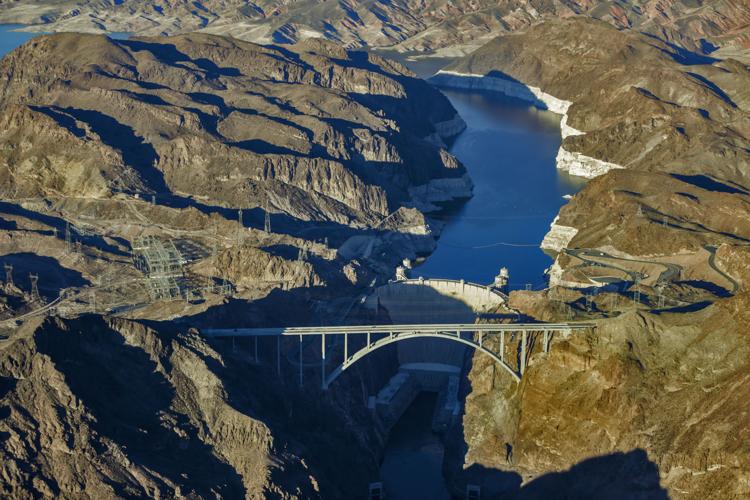For now, water that Arizona and two other Lower Colorado River Basin states store in Lake Mead is safe from another state’s clutches, the Interior Department says.
The commitment, contained in a letter that Deputy Interior Secretary Michael Connor wrote this week, protects this water only through 2016. But Connor, Arizona officials and a top California water official agree that such an assurance could be included in a broader, longer-term agreement covering water use in the region — an agreement now under negotiation.
Connor’s statement is a victory for U.S. Sen. Jeff Flake. The Arizona Republican has tried for some time to get formal assurances protecting Arizona’s water stored in Mead. It follows his unsuccessful attempt to get such language inserted into law after California and the Interior Department objected.
Connor wrote to Flake on Tuesday, saying the department will release unused water belonging to one state to another of the three Lower Basin states — Arizona, Nevada and California — only if all three states agree.
This comes less than two weeks after Flake wrote Connor, seeking the department’s position to help Arizona water users “make fully informed decisions” on whether to participate in voluntary water conservation programs.
The current interior secretary can’t guarantee that water in Mead will stay there forever because a new administration arrives in January. But Connor’s letter said Interior officials hope his commitment will “alleviate remaining distractions” and help arrange a longer-term drought contingency plan for the three Lower Basin states.
“It is through formal agreements that issues such as this can be ‘locked in’ across multiple years and across executive branch administrations,” Connor wrote.
“It’s a positive outcome. It achieves at least in the short term the goal we were seeking,” said Tom Buschatzke, the Arizona Department of Water Resources director. “It gives us more certainty.”
California’s officials are in agreement with Connor’s letter, said a top California water official, Tanya Trujillo. It’s possible that a longer-term agreement could be forged in the ongoing negotiations over how to stabilize the declining lake’s water levels, she said. Arizona, California and Nevada have been negotiating for months over a plan to significantly reduce diversions from the Colorado River to keep Mead from dropping to levels that would trigger severe cutbacks in water deliveries.
But she noted that the U.S. Bureau of Reclamation, an Interior agency, made a similar promise to Arizona alone in writing in 2014.
“It’s the same determination the reclamation has made every year since 2010,” Trujillo added.
But Flake’s office noted that Connor’s letter for the first time requires consensus of all three states before unused water is released.
“This is an important clarification,” said Jason Samuels, Flake’s communications director.
At stake is about 400,000 acre-feet of water that Arizona, California and Nevada could legally use but have left in Lake Mead since 2014. The states chose to leave it because Mead has dropped steadily since 2000.
Arizona has left 345,000 acre-feet in the lake over two years. An acre-foot will supply two typical households with water for a year.
Flake and other Arizona officials have been concerned for some time that this water could be reallocated by the feds to another state, particularly California, with whom Arizona has had a water rivalry for generations.
The interior secretary has legally had the right to transfer one state’s unused water to another state since the U.S. Supreme Court issued a decree allowing such transfers in 1964.
California has denied any interest in taking any of Arizona’s water from Mead.
In a statement, an Interior Department spokeswoman said Connor’s letter reflects longstanding efforts to resolve Colorado River issues by consensus.
“This approach is far superior than unilateral action — particularly in times of historic drought,” the spokeswoman said.





